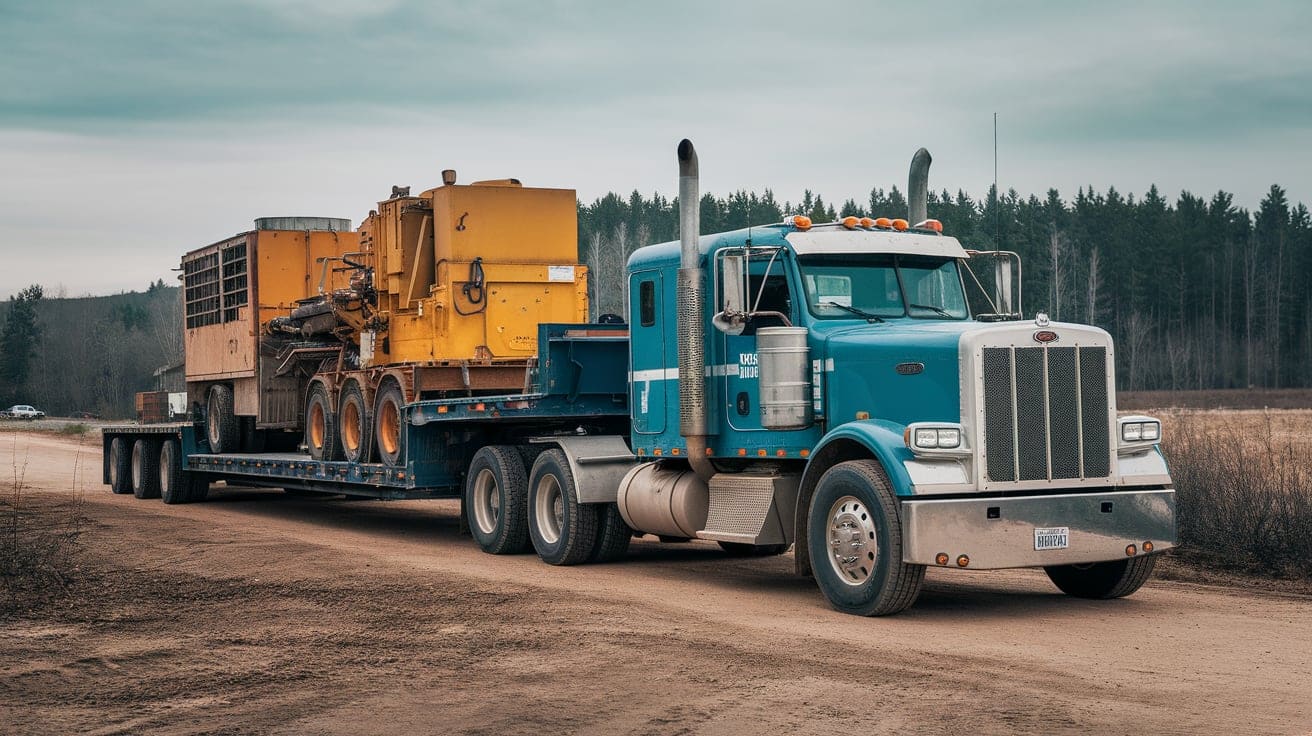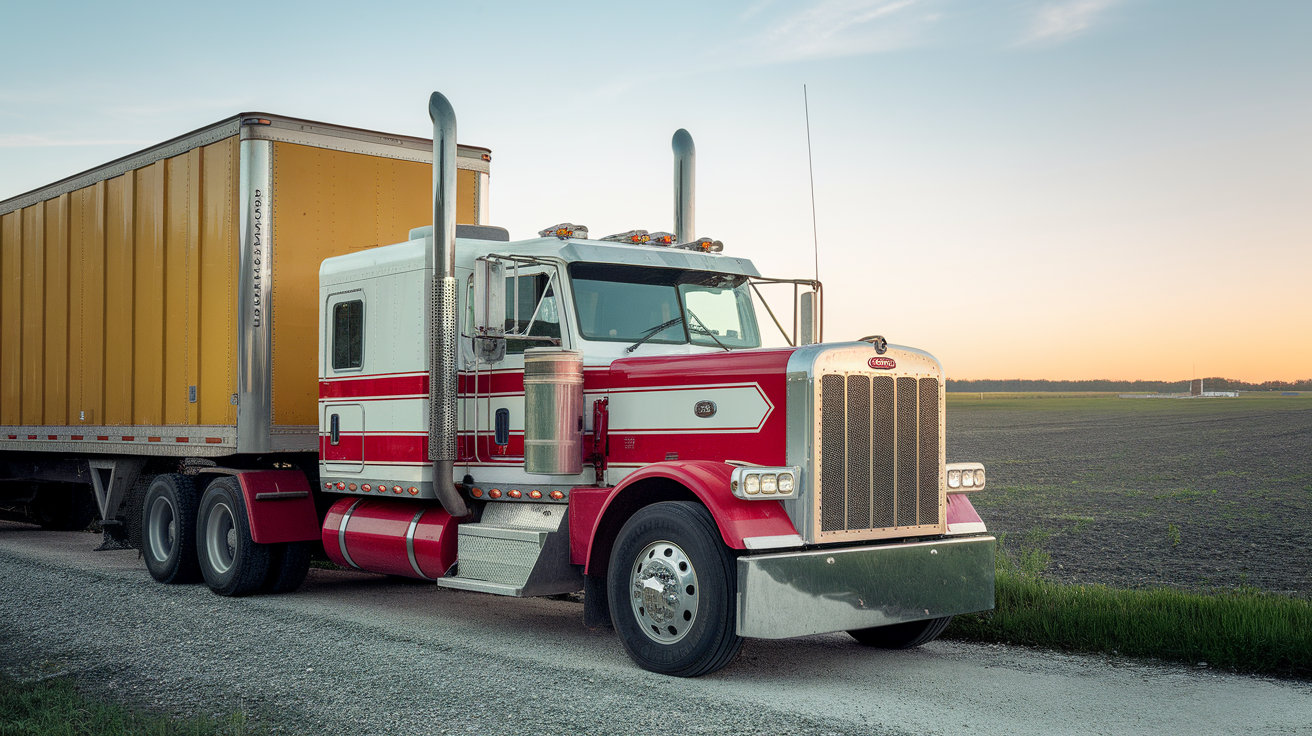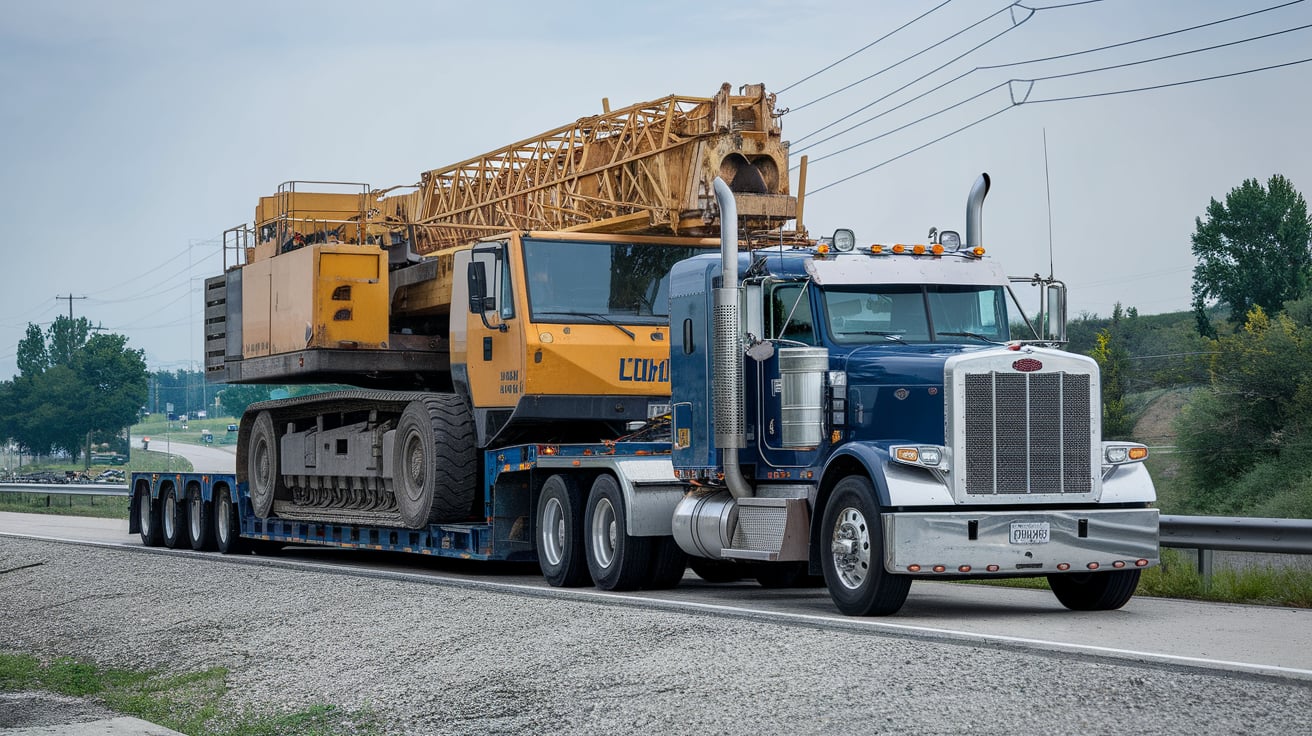Why Safe Trucking Practices Matter for Your Heavy Haul in Idaho
Freedom Heavy Haul can offer expedited Pickup and Delivery for any size shipment anywhere in the USA. Contact us today for No Hassle, No Pressure Pricing.
Heavy haul trucking presents unique challenges, especially in a state like Idaho, where rugged terrain, unpredictable weather, and strict regulations demand extra caution. Transporting oversized or overweight loads is a responsibility that requires a strong commitment to safety. Without the proper precautions, accidents, costly fines, and delays can occur, impacting not only the trucking company but also you as a customer.
At Freedom Heavy Haul, we understand how important it is for you to have your heavy equipment, machinery, or materials transported safely and efficiently. That’s why we prioritize secure and compliant hauling practices to protect your cargo, drivers, and everyone on the road. By choosing a trucking company that follows industry best practices, you can have peace of mind knowing your shipment will arrive on time and without unnecessary risks.
Legal and Regulatory Compliance in Idaho
Heavy haul trucking is highly regulated to ensure road safety and infrastructure protection. Meeting Idaho’s transportation laws is not only a legal requirement but also a critical factor in ensuring the smooth delivery of your shipment. Failure to comply with these regulations can result in delays, penalties, and even the denial of transport permits.
Permit Requirements for Heavy Haul Trucking
Transporting oversized or overweight loads in Idaho requires proper permits issued by the Idaho Transportation Department (ITD). These permits are essential for ensuring that large loads can be transported safely without damaging roads or bridges.
We at Freedom Heavy Haul handle all the necessary permit applications on your behalf, making sure your cargo is transported legally and without interruptions. The types of permits required may include:
- Oversize/Overweight Permits – If your shipment exceeds legal weight or size limits, a special permit is required before transport can begin.
- Annual Permits – If you frequently move similar oversized loads, an annual permit may be a more convenient option.
- Single-Trip Permits – If your heavy haul is a one-time shipment, a single-use permit is necessary to ensure compliance.
Weight and Axle Load Limits
To prevent road damage and maintain safe transportation conditions, Idaho enforces strict weight and axle load limits. If your load exceeds these limits, an overweight permit must be obtained. The maximum legal weight limit on Idaho state highways is 80,000 lbs unless a permit is secured.
Loads exceeding 129,000 lbs are classified as “Superloads” and require additional review before transport is approved. These regulations are in place to ensure that Idaho’s highways and bridges remain safe for all motorists.
Escort and Travel Restrictions
Some heavy haul loads require escort vehicles to guide trucks safely through busy or restricted areas. Escort requirements are based on factors such as load width, height, and overall size.
Other restrictions may include:
- Time-of-day limitations – Some oversized loads are only allowed to travel during daylight hours for better visibility and road safety.
- Route restrictions – Certain roads and bridges prohibit oversized loads, requiring careful route planning in advance.
We at Freedom Heavy Haul ensure that every transport route is planned carefully to comply with Idaho’s regulations and avoid unexpected delays.
Protecting Drivers and Other Motorists
Safety on the road is critical for everyone—not just the truck driver, but also other motorists who share the highway. When you trust a trucking company to transport your heavy load, you need to be confident that they follow strict safety protocols to prevent accidents.

Conducting Pre-Trip Inspections
A well-maintained truck is a safe truck. Before every journey, thorough inspections help prevent unexpected mechanical failures that could put your cargo at risk. A professional trucking company will check for potential issues before getting on the road.
Pre-trip inspections include:
- Brake system functionality – Ensuring that brakes are working properly is essential, especially for downhill travel.
- Tire condition and pressure – Bald or underinflated tires increase the risk of blowouts, which can cause delays and safety hazards.
- Load securement – Straps, chains, and other restraints must be in place to prevent the cargo from shifting or falling during transport.
Speed and Braking Considerations
Heavy haul loads require longer stopping distances, making speed management critical for safe travel. Idaho’s mountainous terrain presents additional challenges, making controlled braking techniques even more important.
Safe speed and braking practices include:
- Using engine braking on steep descents – This helps prevent overheating of the main braking system and reduces wear and tear on the truck.
- Maintaining safe following distances – Keeping enough space between vehicles allows drivers to react appropriately to sudden stops.
- Adjusting speed for road conditions – Rain, snow, and ice make roads slippery, requiring slower speeds and careful maneuvering.
When you hire Freedom Heavy Haul, you can be assured that our drivers are trained to operate safely under all conditions, protecting both your cargo and the motorists around them.
Extending Equipment Lifespan and Reducing Costs
Safe trucking practices don’t just benefit drivers and the public—they also help keep costs down for customers like you. Well-maintained trucks last longer, experience fewer breakdowns, and require fewer emergency repairs, leading to more reliable service and fewer unexpected expenses.

Preventative Maintenance for Heavy Haul Trucks
Regular maintenance is essential for keeping trucks in top working condition. A breakdown in the middle of a haul can cause serious delays, resulting in missed deadlines and higher costs. That’s why professional trucking companies follow strict maintenance schedules to ensure every vehicle is road-ready.
Key maintenance practices include:
- Brake inspections – Checking brake pads, fluid levels, and air brake systems prevents unexpected failures.
- Suspension system checks – Ensuring that the truck’s suspension can handle heavy loads without unnecessary strain.
- Fluid level monitoring – Keeping engine oil, coolant, and transmission fluid at proper levels to prevent overheating and mechanical issues.
Fuel Efficiency and Cost Savings
Fuel costs are one of the biggest expenses in heavy haul trucking. By driving efficiently and maintaining equipment properly, we at Freedom Heavy Haul help keep costs manageable for our customers.
Cost-saving measures include:
- Maintaining steady speeds – Avoiding sudden acceleration or braking reduces fuel consumption.
- Reducing idling time – Unnecessary idling burns fuel without any benefit.
- Planning efficient routes – Choosing the best roads minimizes delays and fuel usage.
When trucks operate efficiently, customers like you benefit from more competitive pricing and timely deliveries.
Handling Idaho’s Terrain and Weather Challenges
Idaho’s landscape is beautiful but also presents significant challenges for heavy haul trucking. From steep mountain passes to sudden snowstorms, every journey requires careful planning and adaptation to the conditions.

Adapting to Mountainous Roads and Steep Grades
Idaho’s highways include challenging routes like Lookout Pass and White Bird Hill, where trucks must navigate sharp curves and steep inclines. These roads require expert handling and the right equipment to transport heavy loads safely.
Safe practices include:
- Using low gears for downhill sections – This prevents excessive strain on brakes.
- Avoiding sudden lane changes – Stability is critical when hauling oversized loads.
- Checking road conditions before departure – Ensuring that routes are clear of hazards like rockslides or closures.
Dealing with Harsh Weather Conditions
Winter storms and high winds can make hauling oversized loads even more challenging. Proper preparation is key to keeping shipments on schedule and preventing dangerous situations.
Weather-related precautions include:
- Tire chains for snow and ice – These provide better traction in winter conditions.
- Reducing speed in high winds – Strong gusts can make large loads unstable.
- Using proper lighting in foggy conditions – Ensuring visibility for both the truck driver and surrounding vehicles.
By carefully monitoring weather conditions and making necessary adjustments, we at Freedom Heavy Haul keep your shipment moving safely, no matter the circumstances.
Choosing a trucking company that prioritizes safety benefits everyone involved—your business, our drivers, and the general public. When you work with a company that follows industry best practices, you can trust that your heavy haul will be delivered on time, without unnecessary risks.







